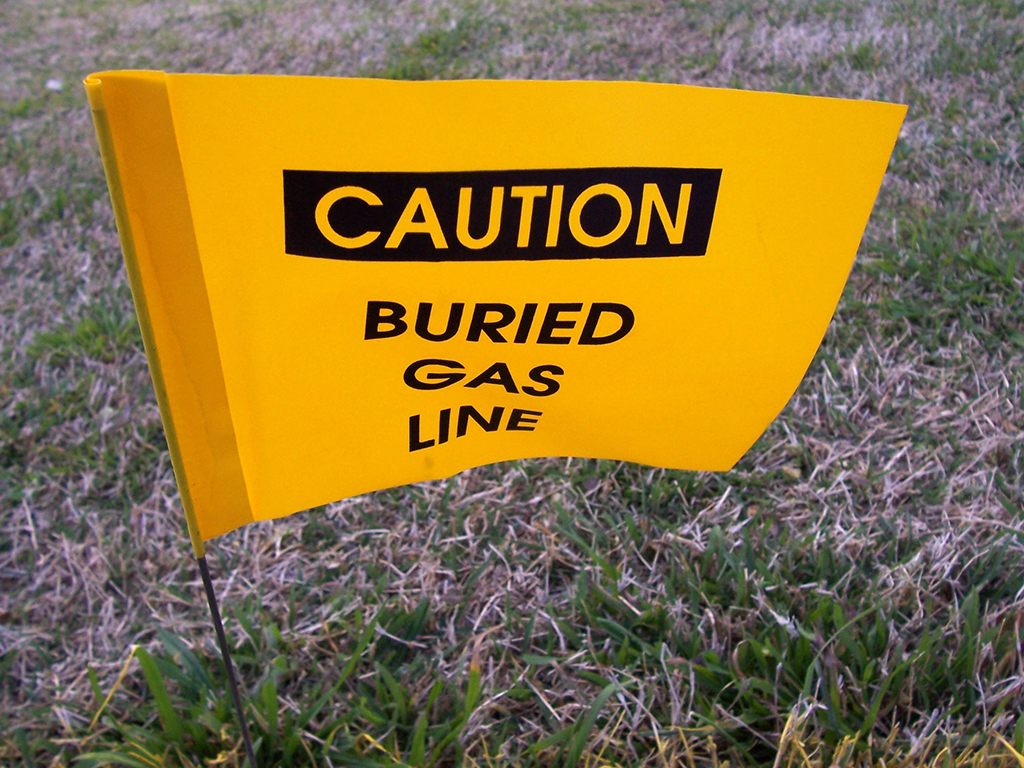
Photo By O’Jay R. Barbee at Shutterstock
Natural gas is widely used in the US as a fuel source for water heaters and other appliances. While natural gas is generally safe, the problems with gas lines can be a safety hazard. Gas leaks are common in Rockwall, TX homes.
As a homeowner, you need to understand the potential damage caused by gas leaks and other gas line problems and get it repaired. Here are six typical causes of gas line problems and what you can do about them.
Gas Leak Problems and Causes
A gas leak in your home is a serious thing that demands immediate attention. You need to call an expert plumber immediately and ask them to fix the gas leak. Here are some common causes of gas leaks in your home.
Fitting and Connection Issues
Fittings refer to the valves, meters, and pipes used to safely transport natural gas from your home’s main gas supply line to gas-powered appliances. Connections refer to the connection points between the fittings and the appliances. You need a skilled person to perform reliable fitting and long-lasting gas line connections.
Do you know a particular group of plumbing professionals dedicated to repairing problems with gas lines? Unless you hire an expert plumber in gas line installation to do the job, you are more likely to get a sub-par installation that will lead to gas leaks after some time. According to plumbing experts, gas line connections made by experts are also bound to develop problems due to degrading materials.
If you sense gas leaking from your gas line, you need to call a plumbing company to investigate the issue and fix any gas leaks. The plumbing professional may suggest the replacement of deteriorated pipes and fix any fitting and connection issues.
Poor Appliance Maintenance
The gas-powered appliance is heavily used in cold weather. Like other appliances in your home, your gas-powered appliance also needs some love and care. If you ignore regular maintenance of the gas-powered appliance, regular wear and tear will cause cracks, a deformation that will cause gas leaks.
You can delay the wear and tear of the gas-powered appliance by regular maintenance. You should call a plumber periodically to inspect the condition/health of the gas-powered appliance and perform any minor repair and maintenance to maintain the gas-powered heater in good condition.
In the absence of regular maintenance, your gas-powered appliance will break down frequently, and you will be required to replace it. Regular maintenance increases the life span of the gas-powered appliance, which will last for a long time.
Appliance Malfunctions
A gas-powered appliance does not have many moving parts, and they are expected to last for several years. However, unexpected problems can develop due to different reasons, and the gas-powered appliance can malfunction, leading to improper ignition/combustion followed by gas leaks.
If the malfunction is related to incomplete combustion of the gas, the natural gas could spread in your house, leading to an accident.
If you notice any gas-powered appliance malfunction in your home, you need to call the plumber immediately before the gas leaks lead to any untoward incident.
Gas Line Blockage
Blockages in gas lines are a common problem in most American homes. Due to water, tree roots, insects, dirt, and debris, a gas line may get clogged. A gas line can also develop a kink or nasty dent that blocks the gas in the line. You can quickly identify gas blockage issues and call a plumber.
For example, the gas supply from the main gas line is fine, but the gas is not reaching the appliance. In some cases, the gas-powered appliance may produce low flame, or the water heater does not provide you hot water even with the highest temperature setting.
A gas line blockage can lead to more than an inconvenience. It can lead to gas buildup in the gas lines, which may burst due to higher pressure. If the gas pipes or connections are corroded, the gas line may not withstand the gas pressure and burst at the weak areas.
If you notice any gas blockage issues in your Rockwall, TX home, shut off the primary gas connection and call a plumber immediately. The plumbing professional will inspect the gas line in your home, find the gas blockage and perform necessary repairs to get the gas line working again.
Valve Issues
A gas line in your house may have more than one valve. The gas valve is installed to control the flow of the natural gas in your home. They are made of a variety of materials like metal or plastic that is compatible with pressure requirements.
Over time, gas valves can go bad or start leaking. If the valve goes bad, it will stop the gas supply in a forward direction, and you may not be able to use the gas-powered appliance until the faulty gas valve in your home is restored. In some cases, the gas valve starts leaking, and it needs to be replaced.
If you notice the gas valve is malfunctioning, call the plumber immediately and get the gas valve replaced.
Copper Gas Lines
According to an experienced plumber, many types of pipes are used to construct a gas supply network in your home. You can find the use of flexible corrugated stainless steel tubing (CSST) pipes; pipes made of high-density polyethylene and galvanized steel in US homes. Some old US homes also have copper gas lines.
Plumbing experts mention copper pipes are not recommended for gas lines. Copper creates sulfites that cause clogs in a gas line. Also, copper is a good energy conductor that makes it dangerous for supplying gas in the home. Hence, you need to call a plumber and replace the copper gas line with recommended material pipes.
Why Do You Need to Call Plumbing Professionals to Fix Gas Lines Issues?
You can trust bluefrog Plumbing + Drain of North East Dallas to fix any gas line issues in your home. We have been providing gas line repairing services in Rockwall, TX, for several decades. We have a long list of happy customers who love our prompt response, impeccable service, and professionalism.
We are available at your service 24×7 at your service. Just call us, and our plumber will reach your home and fix gas lines issues effectively.






 Free Diagnostic - With Paid Repair
Free Diagnostic - With Paid Repair

